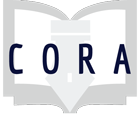The purpose of this activity is to inspire students to adopt structured methods when they explore and retrieve information. It is based on lab notebooking methods and on managing and documenting the flow of references in Zotero, a reference management software.
Assignments
This lesson was co-developed by Daniel Ransom and Nicole Branch. This is an intensive APA workshop that could be broken into parts. It covers both APA citation and formatting, with a protest theme. The workshop was conducted as a stand-alone, outside of class workshop at Holy Names University in 2014 and 2015. Though Occupy is now dated, the theme of protest could be adapted to something more current. We didn't think it would be possible to make APA citation engaging, but this lesson did just that. It was especially popular with nursing and education students.
During this activity, students work in small groups to explore assigned databases and then share back what they learn in a Google Doc projected at the front of the classroom.
Through a reading assignment, a brief lecture, and small group discussion, students training to be high school teachers learn about Information Literacy (IL) and Critical Information Literacy, and consider how they can apply these concepts within their disciplines and in their teaching practice. This short, 55-minute session was taught for a course called "Foundations in Secondary Education", offered through the Single Subject (Secondary) Teaching Credential program at Saint Mary's College of California's Kalmanovitz School of Education.
Created by M. Brown-Salazar Saint Mary's College of CA This lesson was developed to have graduate level students explore social justice issues in information found on the internet. It is based on Dr. Safiya Noble's work: Algorithms of Oppression. Simplified, we asked students to consider that when we seek information, we need to examine the perspective/privilege of the voices/sources of information and identify/understand whose voices are represented and whose voices are missing and how that impacts/influences our understanding.
In small groups students give a presentation examining how the popular media reports scientific findings.
As people rely more and more on social media to get their news, the filter bubble becomes increasingly problematic. In this workshop, students learn how to evaluate whether a news site is reliable. This group activity takes about 30 minutes and can be used for many different audiences by adjusting the examples used.
This group activity can be used in a variety of disciplines and contexts. Pass the Problem aims to have students provide feedback to other students on database and keyword selection. By having students critique each other it works to build critical self-reflection during the research process (it's also pretty fun!).
Students will learn to identify where they might find school and community data; practice accessing this data; and create a school community data profile. Students will also be introduced to some of the problems of bias when looking at school and community data. For part one, student will find data for the high school they attended and the community they grew up in. In part two, students will collect the same data for a school in the community they will be working in over the course of the quarter.
This annotated bibliography assignment has five different versions for five different groups of disciplines: arts, humanities, social analysis (social sciences), life and physical sciences, and quantitative reasoning. Each is meant to give students a way to identify and explore the key types of scholarly sources in those disciplinary categories; for example, to understand what is meant by a primary source in each category.
